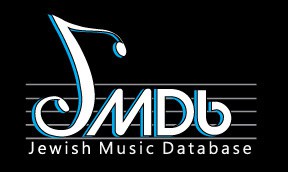About Us
Who We Are
Most art musicians of Jewish origin in the 19th century composed music that cannot be considered Jewish in any sense. In the words of Peter Gradenwitz, from this period onwards, the issue is “no longer the story of Jewish music, but the story of music by Jewish masters.”[19] Jacques Offenbach (1819–1880), a leading composer of operetta in the 19th century, was the son of a cantor, and grew up steeped in traditional Jewish music. Yet there is nothing about his music which could be characterized as Jewish in terms of style, and he himself did not consider his work to be Jewish. Felix Mendelssohn, the grandson of the Jewish philosopher Moses Mendelssohn, continued to acknowledge his Jewish origins, even though he was baptized as a Reformed Christian at the age of seven. He occasionally drew inspiration from Christian sources, but there is nothing characteristically Jewish about any of his music.
rigin in the 19th century composed music that cannot be considered Jewish in any sense. In the words of Peter Gradenwitz, from this period onwards, the issue is “no longer the story of Jewish music, but the story of music by Jewish masters.”[19] Jacques Offenbach (1819–1880), a leading composer of operetta in the 19th century, was the son of a cantor, and grew up steeped in traditional Jewish music. Yet there is nothing about his music which could be characterized as Jewish in terms of style, and he himself did not consider his work to be Jewish. Felix Mendelssohn, the grandson of the Jewish philosopher Moses Mendelssohn
What We Do
dentity which would suit the new, emerging identity of Israel. While the response of each of these composers to this challenge was intensely personal, there was one distinct trend to which many of them adhered: many of these and other composers sought to distance themselves from the musical style of the Klezmer, which they viewed as weak and unsuitable for the new national ethos. Many of the stylistic features of Klezmer were abhorrent to them. “Its character is depressing and sentimental”, wrote music critic and composer Menashe Ravina in 194s.
Our Goals
As part of our services, you may decide to provide information to us specifically to be shared with third parties. For example, you may allow us to build statistical reports based on what malicious visitors have visited your site(s). In these cases, we will try to make it clear whenever any information you provide to us will be made public.
How You Can Help
ic and, to a lesser extent, traditional Yemenite and eastern Jewish styles: the songs were often homophonic (that is, without clear harmonic character), modal, and limited in range. “The huge change in our lives demands new modes of expression”, wrote composer and music critic Menashe Ravina in 1943. “… and, just as in our language we returned to our historical past, so has our ear turned to the music of the east … as an expression of our innermost feelings.”[24]
The youth, labor and kibbutz movements played a major role in musical development before and after the establishment of Israeli statehood in 1948, and in the popularization of these songs. The Zionist establishment saw music as a way of establishing a new national identity, and, on a purely pragmatic level, of teaching Hebrew to new immigrants. The national labor organization, the Histadrut, set up a music publishing house that disseminated songbooks and encouraged public sing-alongs (שירה בציבור). This tradition of public sing-alongs continues to the present day, and is a characteristic of modern Isra

